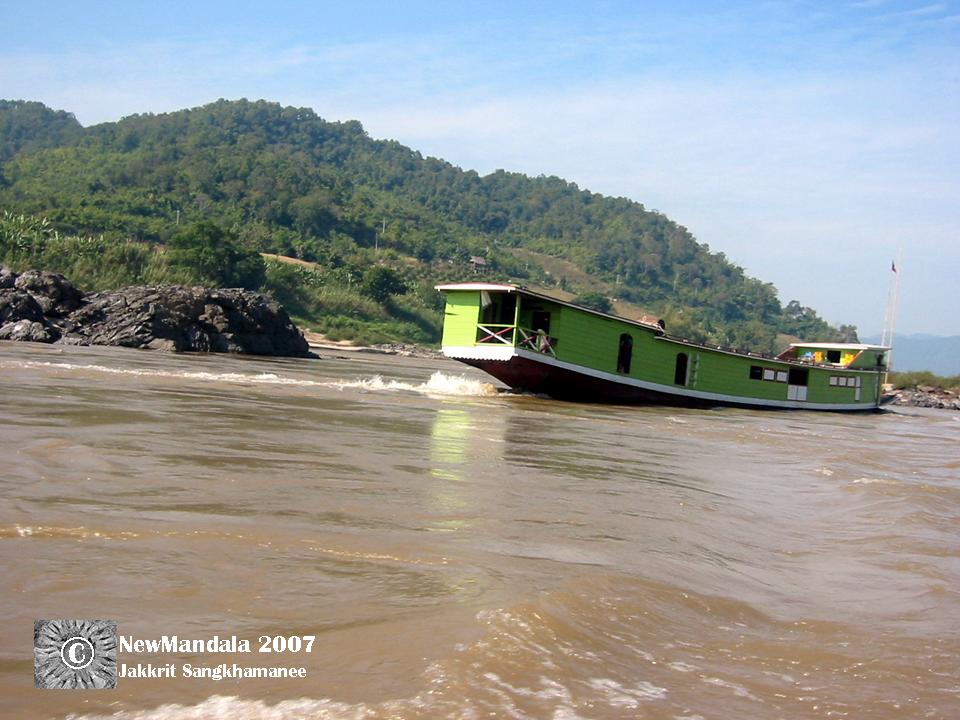The mobile life associated with river trading operations may cause Lao traders to feel insecure and estranged from friends and relatives back home. But at the same time, such mobility may also bring opportunities to be exposed to new ways of living, information and connections across the border. This kind of opportunity is quite rare for other Lao people who do not have the chance to travel and to know different lifestyles abroad. Even though we cannot trade off the advantage of having cross-border experience with the effects of living away from home, there is no doubt that the circumstances of being temporarily disconnected from homeland and momentarily linked with new places have formed a “river border identity” for Lao traders that is quite different to that of more settled Lao.
Lung Petch, a 55 year old Lao trader, has been driving his boat for more than two decades and is now one of the long-distance traders working the route between Chiang Khong and Luang Prabang. He used to ply the boat on other river routes, such as to Ban Mon in northern Laos, before Chiang Khong became a significant trading depot. He also still has relatives in Chiang Sean, Chiang Khong, and Chiang Khan in Thailand as a result of migrations to Thai soil during the time the French occupied the Lan Xang kingdom. Lung Petch still makes use of family connections for different purposes when crossing into Thai territory. For example, he does not perform any immigration registration when entering into Thailand, but rather calls his relatives to pick him up at the port even though the immigration police are getting stricter with border control.
It is not only family ties that allow him to conduct these “illegal” activities, but also his attention to the Thai media. Traders like Lung Petch receive information from listening to the Thai AM radio programs during the long boat trip. With the wide range of radio signal coverage broadcast from Chiang Rai in Thailand, Lung Petch in the isolated Mekong valley knows what sale promotion campaigns are going on in town. One time when his television set at home in Luang Prabang was broken, he learnt from listening to the Thai radio that he could trade-in his broken TV and buy a new one with reduced price from a store in Chiang Khong. And he did so. Also, he has sent his mobile phone for repairs with Thai phone stores several times. And he often uses different kinds of after-sale service provided on the Thai side of the border. This kind of consumerist style is not available for those who do not have mobile lives or connections across the border. The Lao long-distance traders with itinerant lives and cross-border experience have more lifestyle options and a wider choice of goods and services.
Go to Golden Boat update 1, update 2, update 3, update 4 and update 5.
 Facebook
Facebook  Twitter
Twitter  Soundcloud
Soundcloud  Youtube
Youtube  Rss
Rss 